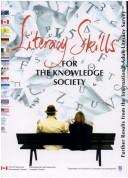| Listing 1 - 10 of 131 | << page >> |
Sort by
|
Book
ISBN: 1280380144 9786613558053 0309219604 9780309219600 9781280380143 9780309219594 0309219590 Year: 2012 Publisher: Washington, D.C. : National Academies Press,
Abstract | Keywords | Export | Availability | Bookmark
 Loading...
Loading...Choose an application
- Reference Manager
- EndNote
- RefWorks (Direct export to RefWorks)

ISBN: 2020100886 Year: 1988 Publisher: Paris : Seuil,
Abstract | Keywords | Export | Availability | Bookmark
 Loading...
Loading...Choose an application
- Reference Manager
- EndNote
- RefWorks (Direct export to RefWorks)
Book
ISBN: 9780415882477 0415882478 9780415882484 0415882486 Year: 2011 Publisher: London : Routledge,
Abstract | Keywords | Export | Availability | Bookmark
 Loading...
Loading...Choose an application
- Reference Manager
- EndNote
- RefWorks (Direct export to RefWorks)
Book
ISBN: 9231026518 Year: 1990 Publisher: Paris Unesco
Abstract | Keywords | Export | Availability | Bookmark
 Loading...
Loading...Choose an application
- Reference Manager
- EndNote
- RefWorks (Direct export to RefWorks)
Book
Abstract | Keywords | Export | Availability | Bookmark
 Loading...
Loading...Choose an application
- Reference Manager
- EndNote
- RefWorks (Direct export to RefWorks)
August 2000 The policy implications of this study of the determinants of literacy and earnings in Ghana: Basic education and literacy programs should target girls and poorer households, especially in rural areas. Blunch and Verner analyze the determinants of literacy and earnings in Ghana. They link literacy and earnings with various other factors, including age, gender, family educational background, distance to school, and income. Literacy and age are negatively correlated, suggesting that efforts to strengthen the supply and quality of basic education programs in recent years have succeeded in raising literacy rates. Parents' education is positively associated with literacy. Distance to the nearest primary school, residence in a rural area, and poverty are negatively associated with literacy. Functional literacy appears to be a prerequisite for entering the labor market, which may partly explain the lack of returns to education other than middle school and technical and professional training. The policy implications of this study: Basic education and literacy programs should target girls and poorer households, especially in rural areas. This paper is a joint product of Human Development 3, Africa Technical Families, and Economic Policy Sector Unit, Latin America and the Caribbean Region. The authors may be contacted at nblunch@worldbank.org or dverner@worldbank.org.
Book
ISBN: 9789264300279 Year: 2015 Publisher: Paris : OECD Publishing,
Abstract | Keywords | Export | Availability | Bookmark
 Loading...
Loading...Choose an application
- Reference Manager
- EndNote
- RefWorks (Direct export to RefWorks)
Spain's economy is showing clear signs of recovery, after a protracted recession. Despite these positive developments significant challenges remain. Spain has amongst the highest unemployment rates in the OECD and the Spanish economy was still smaller in 2014 than it was in 2007. While the future is by definition uncertain, all signs point to a world in which higher levels of skills will be increasingly critical for people's success in the economy and society. Skills improvements are an important driver of employment, productivity, economic growth, and higher living standards. Fostering better and more equitable skills outcomes also provides the foundation for building a healthier, more equitable, and more cohesive society. The OECD Skills Strategy Diagnostic Report: Spain identifies 12 skills challenges for Spain. These challenges were identified through workshops with national and regional governments and stakeholders and through analysis of OECD, European Commission and national data. The first eight challenges refer to specific outcomes across the three pillars of developing, activating and using skills. The next four challenges refer to the "enabling" conditions that strengthen the overall skills system. Success in tackling these skills challenges will boost performance across the whole skills system.
Book
ISBN: 3631503628 9783631503621 Year: 2003 Publisher: Frankfurt a.M.: Peter Lang,
Abstract | Keywords | Export | Availability | Bookmark
 Loading...
Loading...Choose an application
- Reference Manager
- EndNote
- RefWorks (Direct export to RefWorks)
Book
ISBN: 0872073564 Year: 1990 Publisher: Newark International reading association
Abstract | Keywords | Export | Availability | Bookmark
 Loading...
Loading...Choose an application
- Reference Manager
- EndNote
- RefWorks (Direct export to RefWorks)
Functional literacy --- Literacy --- History
Book
Year: 1999 Publisher: Los Angeles, CA : ERIC Clearinghouse for Community Colleges,
Abstract | Keywords | Export | Availability | Bookmark
 Loading...
Loading...Choose an application
- Reference Manager
- EndNote
- RefWorks (Direct export to RefWorks)

ISBN: 9264156240 Year: 1997 Publisher: Paris OECD
Abstract | Keywords | Export | Availability | Bookmark
 Loading...
Loading...Choose an application
- Reference Manager
- EndNote
- RefWorks (Direct export to RefWorks)
Functional literacy --- Literacy --- Statistics
| Listing 1 - 10 of 131 | << page >> |
Sort by
|

 Search
Search Feedback
Feedback About UniCat
About UniCat  Help
Help News
News